The Rhodesian Ridgeback is a true clash of cultures. A mix of African and European breeds, these fearsome hunters once went head to head with lions. Today, though, they’re a cult classic of a dog. Many owners praise their affectionate yet sassy personalities. Read on to learn more about the Rhodesian Ridgeback.
Description of the Rhodesian Ridgeback
Muscular yet lean, these dogs look like true athletes. Their smooth coat is perfect for their outdoorsy nature.
Ridgebacks are crosses of the African Khoikhoi and various European breeds. They came about when Dutch settlers in South Africa began to curate dogs specifically for lion hunting. This versatile breed could not only effectively track lions, but also hunt small game and protect the camp.
The Rhodesian Ridgeback technically comes in one color: wheaten. However, this can be anything from tan to red. As their name suggests, these dogs feature a strip of backward facing hair along their spines.
Life Expectancy and Size
This breed has a life expectancy of between 10 and 12 years.
They usually stand between 24 and 27 inches tall and weigh between 70 and 85 pounds. However, the Rhodesian Ridgeback is slimmer than some other large breeds.
Protective Ability
These dogs are born protectors. Today, they still form strong bonds with their humans, and will likely do anything to protect them. Indeed, it is important to socialize Ridgebacks early so that they are friendly with strangers.
Training
The Rhodesian Ridgeback is a smart dog that takes jobs seriously. As such, it is important to make him understand why it is in his best interest to listen. Make training sessions fun and rewards clear. These dogs will be very motivated by treats and toys. There’s no need to correct with force.
Like with all dogs, it is important to base training in positive, reward-based methods. Maintain an upbeat, fun attitude when working with your pet.
Energy Level
People bred Rhodesians to hunt and a whole lot more. Thus, they still retain the energy level necessary to go chasing lions. Although not as high energy as some working breeds, Rhodesians still need daily activity. That will allow them to settle down truly enjoy their time lazing around with the family.
Young Rhodesian Ridgebacks are significantly more energetic. They may enjoy racing around for hours on end and exuberant jumping is not uncommon.
What Living with a Rhodesian Ridgeback is Like
This breed is a good choice for athletic owners that want a loyal companion to keep up with their active lives. The Ridgeback is an active dog that enjoys being occupied for at least part of each day, especially in the outdoors. They love to stretch their legs!
Rhodesians are not the best choice for city or apartment living, unless access to the outdoors is guaranteed. If they must be kept in the city, make sure to give them adequate structured exercise.
Care of the Rhodesian Ridgeback
These are hardy African dogs, in need of little special care, just exercise and social time.
Environmental Needs
This breed is not picky when it comes to weather. They were developed for the outdoors and in fact the extreme heat. Although they can tolerate cold weather, ensure that they have adequate protection from inclement weather
Exercise Needs
If the Ridgeback does not receive adequate exercise, he will likely begin to act out. To avoid this, give him plenty of time outdoors. This can involve long daily walks. However, these dogs should also be given the opportunity to play and run around. This is best accomplished in a large enclosure.
Ideally, Ridgeback should have a safe area to run and explore. They are of course very adept at hunting and tracking. Some love canine sports.
Allowing them to exercise with their humans is perhaps the easiest way to guarantee their happiness.
Shedding and Grooming
Despite a short coat, this breed does shed some. Brushing once a week with a hound glove should remove excess hair. Bathe as necessary and wipe off with a cloth or damp towel in between sessions.
Of course, maintain regular maintenance of the ears, teeth, and nails.
Ideal Home Environment
These dogs can balance their life at home and in the office. They will do best with a family where they have a job. When they are properly occupied, it’s much easier for them to be steady and calm at home.
The Rhodesian should be fine with other family pets. However, early socialization is a must. They do best with pets they’re raised with. Rhodesians are known for being particularly good with kids.
Health Concerns
The most common health issues are with the hip, elbow, and eye. This especially occurs later in life.
Other issues arise with the thyroid in some individuals. Birth defects are not uncommon, but are less likely in responsibly bred dogs.
Behavior Problems
Most behavior problems are completely preventable. Ensuring that these dogs receive proper exercise can decrease the likelihood that they become destructive and begin to chew or dig. That said, this dog can be naturally aloof and suspicious of strangers. Obedience and exercise alone won’t fix everything!
Many Ridgebacks still have a strong prey drive and may run without thinking. Remember this, or face potentially devastating consequences.

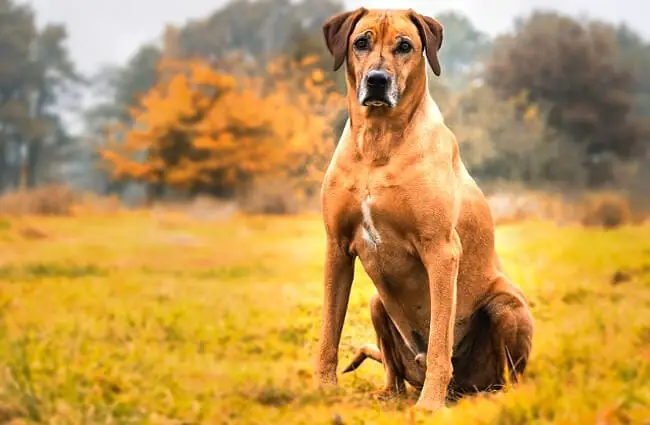
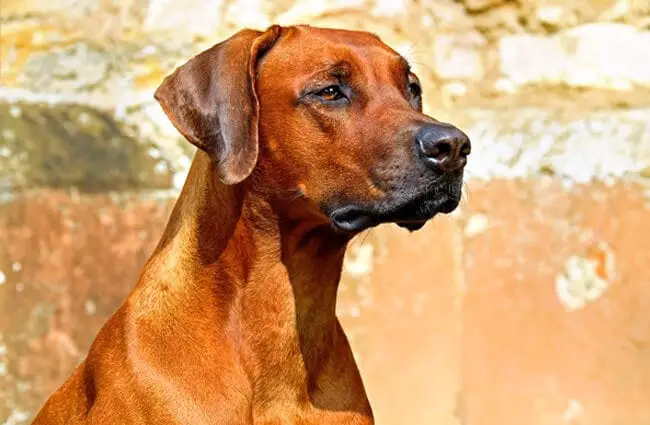
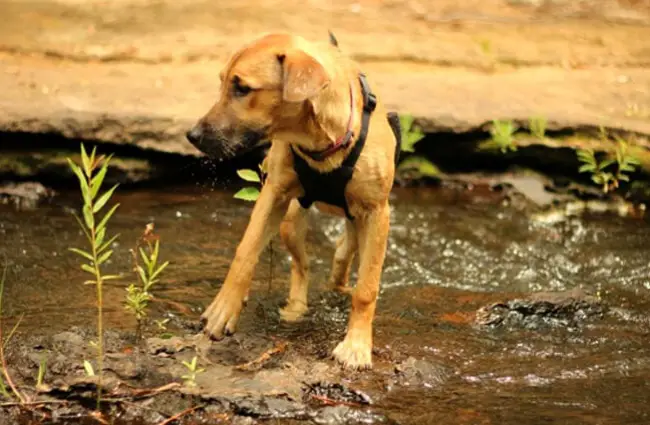
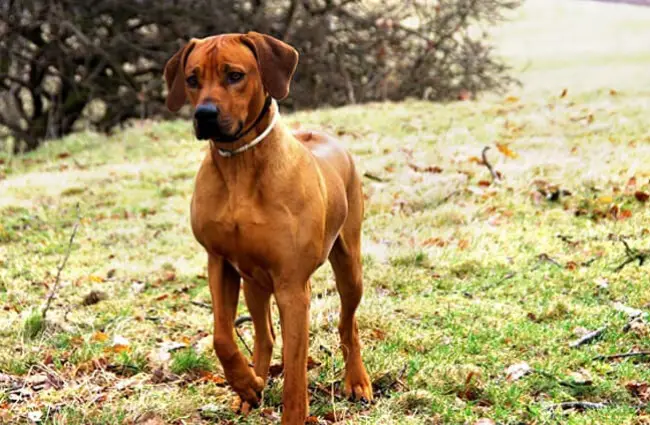
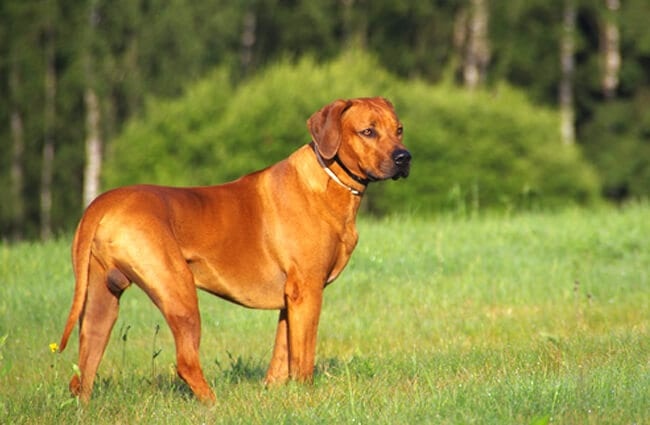
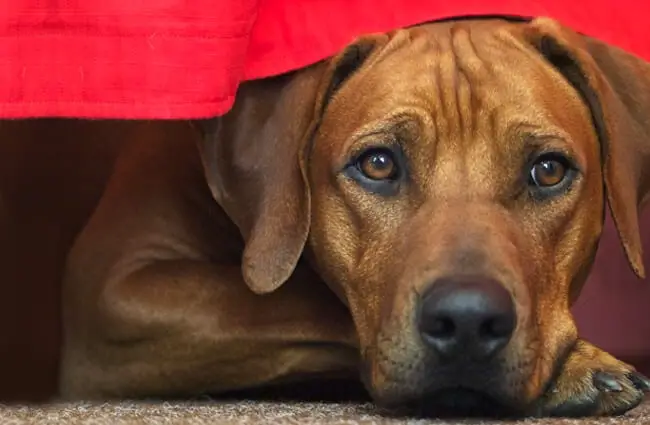
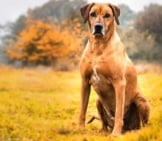
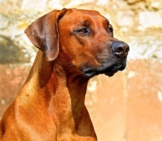
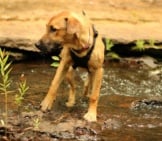
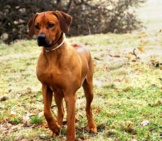
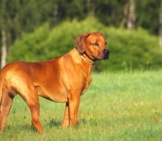
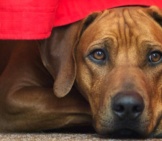
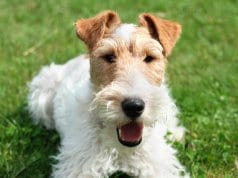
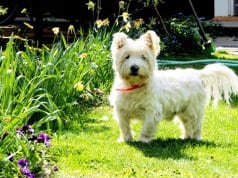
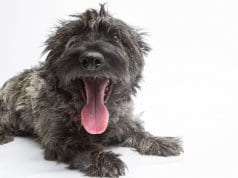
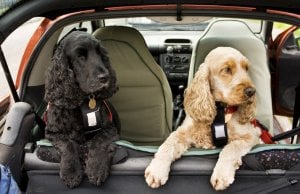
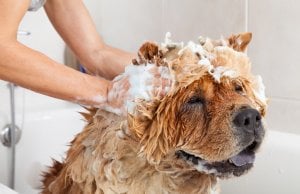

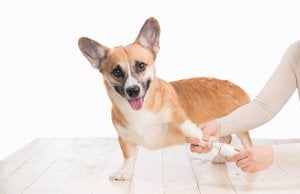

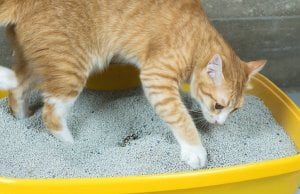
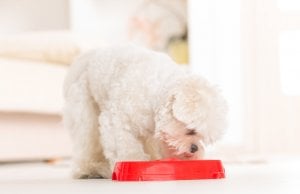
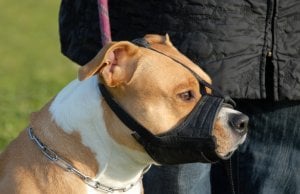
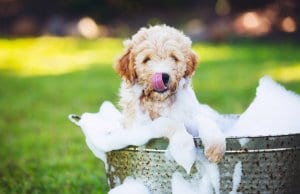
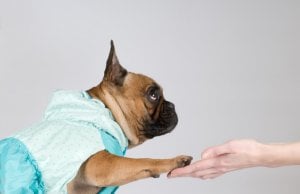
![Red Angus Closeup of a beautiful Red Angus cowPhoto by: U.S. Department of Agriculture [pubic domain]https://creativecommons.org/licenses/by/2.0/](https://animals.net/wp-content/uploads/2020/03/Red-Angus-4-100x75.jpg)

